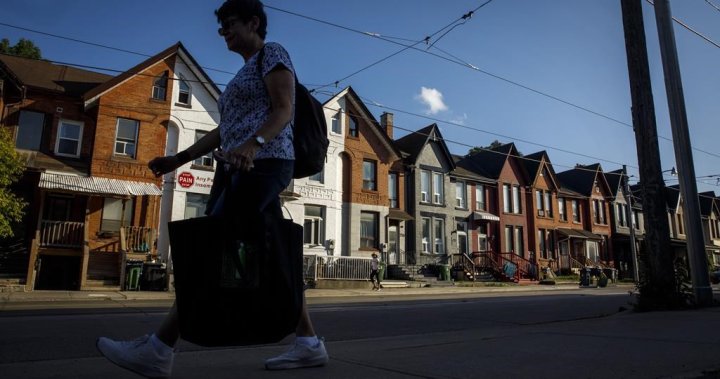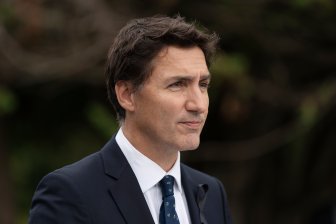
[ad_1]
The federal government’s recently announced inflation relief for lower-income Canadians through the GST rebate is shaping up to be a better policy than some of the cash payments issued by provinces, economists say .
After months of mounting political pressure from the NDP to help low- and modest-income Canadians facing a rising cost of living, the federal government officially announced Tuesday that it will double the GST rebate for six months.
Read more:
Will Trudeau’s $4.5B affordability plan help? Here’s what you need to know
Read more
-
![]()
Will Trudeau’s $4.5B affordability plan help? Here’s what you need to know
Prime Minister Justin Trudeau also announced that the federal government will expand eligibility for the one-time top-up of $500 for the Canada Housing Benefit available to renters.
Both were among a list of measures the government intended to unveil last week, but the announcement was delayed following the death of Queen Elizabeth II.

Michael Smart, an economics professor at the University of Toronto and the co-director of the Finance of the Nation project, said it makes sense to increase the GST refund to reflect inflation.
“If we’ve promised people in the past that we’re going to give them some support, that amount that we promise should be adjusted for inflation,” Smart said.
The federal government indexes benefits to inflation, but due to a delay in how it is calculated, benefits in 2022 will increase by 2.4 percent, well below the current inflation rate. In July, the annual inflation rate was 7.6 percent.
Read more:
Canadians want more help with the cost of living crisis, the Liberals say
This one-time adjustment provides a temporary fix, Smart said, but a permanent change is needed in how the indexation is calculated.
“There should be a permanent adjustment to the formula (to) make it more responsive to inflation from year to year than it is now,” he said.
The GST rebate is a means-tested benefit that is phased out based on income and household composition. For example, the refund is completely eliminated for an individual without children who makes about $49,200 a year, and about $58,500 for a couple with two children.
Current recipients of the refund can expect to receive a lump sum payment before the end of the year.

Lindsay Tedds, associate professor of economics at the University of Calgary, said that while the new relief is not narrowly targeted, it is short-lived, as people will not receive the help until the end of this year.
“It doesn’t help people in real time pay their bills,” Tedds said.
The inflation relief was foreshadowed by former parliamentary budget officer Kevin Page, who earlier this year said the federal government would face increasing pressure come fall to provide aid to Canadians at low income
Read more:
Freeland proposes affordability programs, but no new spending, to fight inflation
The federal government, however, is far from the only government to succumb to this political pressure. Almost all provincial governments have introduced policies to help Canadians deal with historically high inflation.
Saskatchewan gives $500 to all adult residents, for example, while other provinces have sent money to residents below a certain income threshold. In Ontario and Alberta, gas rates have been temporarily reduced.
Economists are often wary of providing direct payments to people amid high inflation, especially when they are sent indiscriminately, out of concern that it could fuel prices even higher.

Tedds said any kind of support should aim to maintain the consumption levels of low-income Canadians rather than higher fuel consumption.
“(The GST refund) is aimed at people with low incomes, who are probably the most unable to dip into savings or other things to pay for these increased costs. Therefore, it is unlikely to fuel inflation,” he said .
Smart said some of the measures introduced by the provinces were politically rather than economically driven.
Read more:
Rate hikes add to financial ‘burden’ but necessary to fight inflation: Bank of Canada
“There’s no need to cash checks to middle-class Canadians,” he said.
Smart said giving people money and increasing the deficit will be counterproductive as the Bank of Canada works to reduce inflation through higher interest rates.
As government revenues rise, governments should resist the urge to return that money to the people, he said.
“We all bear the burden of inflation. And it’s unfortunate, but what the government – what we all need to do now is to focus on reducing inflation.”
© 2022 The Canadian Press
[ad_2]
Source link




